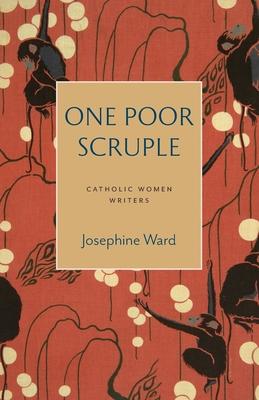The Catholic University of America Press is pleased to continue to present new volumes in our Catholic Women Writers series, which will shed new light on prose work of Catholic women writers from the 19th and 20th centuries.
Josephine Ward is one of Catholicism's greatest literary treasures and a foremost contributor to English literary history - except that she has all but completely fallen from the historical record. She spent her life in close companionship with the most active minds working in the late 19th century to restore to the Catholic Church in England the intellectual, sacramental and theological integrity it had once enjoyed before three hundred years of persecution. All seven of her novels are out of print, despite their once high acclaim in the fin de sicle literary world.
First published in 1899, One Poor Scruple follows the recusant Riversdale family who have survived the long penal years by observing a quiet aristocratic life of sport and agriculture, never stepping into the public sphere from which Catholics in Britain had been barred for so long. But at the start of the twentieth century, a new generation has emerged. The novel's younger characters are now legally able to go to Oxford and Cambridge and to enter the public life of letters. Emboldened by the confident work of John Henry Newman, this younger generation of Catholics are nonetheless cautioned not to trust the Protestant establishment. One Poor Scruple is a coming-of-age story in which the new generation of more worldly Catholics search for love, friendship and intellectual emancipation in the decadent social world of Edwardian London. Decades before Evelyn Waugh examined in Brideshead Revisited the human struggle to distinguish between true and false beauty, Ward's novel examined the challenge of discerning between conflicting desires and of living a life that is as truthful and good as it is beautiful.
